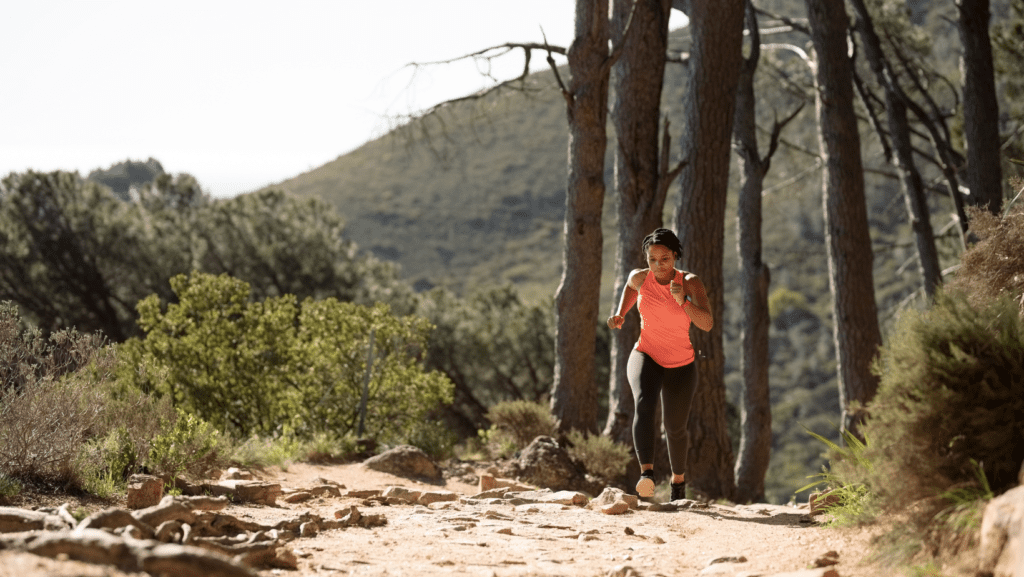
This post may contain affiliate links. For more information, read the full disclosure here.
A journey of personal growth in your 20s is a powerful step toward crafting the life you’ve always dreamed of. This pivotal decade is ripe with opportunities for self-discovery, learning, and laying the foundation for a fulfilling future.
Whether you’re feeling a bit lost on where to begin or eager to dive deeper into your self-improvement quest, you’re not alone. The road to personal growth is both exciting and challenging, offering invaluable lessons and experiences along the way.
In this post, we’ll explore practical steps you can take to nurture your growth and transform your twenties into a decade of progress and self-discovery. Let’s begin on this journey together, revealing the potential that lies within you to create lasting change.
The Importance Of Personal Growth In Your 20s
Ah, your twenties. It’s a decade where you’re supposed to have your life together, but somehow, you’re still figuring out how to cook something more complicated than instant noodles. Sounds about right?
Well, amid the chaos of early adulthood, personal growth takes the front seat, steering you toward the kind of future you’ve always daydreamed about during those dull college lectures.
The Role of Self-Discovery
Let’s face it: discovering who you truly are isn’t going to happen in a single epiphanic moment as you stand in the rain—even though Hollywood wants you to believe.
Your twenties offer a unique sandbox environment where it’s totally okay to try on different versions of yourself. Want to be a minimalist? Go for it. Feel like embracing your inner foodie? Why not!
This decade is your personal lab, and every experiment, no matter how small, teaches you something crucial about yourself. It’s through these trials and errors you begin to carve out your own identity, figuring out your likes, dislikes, strengths, and areas you could maybe, just maybe, work on.
Embracing Life’s Changes And Challenges
Newsflash: Life doesn’t get easier; you just get stronger. Your twenties are peppered with changes and challenges that make it feel like the universe is testing your patience.
Got your first job and are already thinking of quitting? Welcome to the club. But here’s the gold nugget of wisdom—every challenge is a disguised opportunity for growth. It’s about learning to ride the waves, not waiting for the storm to pass.
Embracing change, adapting to new circumstances, and tackling challenges head-on refine your resilience like nothing else. So next time life throws a curveball, catch it and throw it back.
The Impact Of Personal Growth On Future Success
Let’s chat about the long game. Personal growth isn’t just about making your present self a tad bit more awesome; it’s laying the groundwork for future success.
Think of it as investing in a high-yield savings account, where the more you deposit now, the bigger the reward later. Every book you read, every new habit you form, and every feedback you take to heart compounds over time.
It shapes you into someone equipped to seize opportunities, face adversities, and eventually lead a fulfilling life. Plus, let’s not forget that the skills and self-awareness you accumulate during this hustle don’t just look fabulous on a resume; they make you a well-rounded person.

7 Key Areas To Focus On For Personal Growth In Your 20s
Forget about exploring this time with a “just winging it” attitude. Let’s jump into some key areas that deserve your full-on focus. Trust me, future you will thank you for paying attention to these game-changers.
Learn Your Strengths And Weaknesses
First things first, let’s figure out what you’re working with. Understanding your strengths gives you a jetpack in your career and personal life. Weaknesses? They’re not flaws but areas ripe for development.
Imagine being a superhero but not knowing your powers – it kinda wastes the whole ‘saving the day’ vibe, right? So, grab a journal, and let’s start exploring what makes you, well, you.
Prioritizing Physical And Mental Health
Your body and mind are like a high-performance vehicle – neglect its maintenance, and you’re in for a bumpy ride. Regular exercise, a balanced diet, and enough sleep are your premium fuel.
Don’t forget your mental health! It’s easy to let stress and anxiety ride shotgun, but mindfulness practices like meditation or yoga can help kick them to the curb. Remember, a healthy you is a happy you.
Discover What Brings You Joy (And What Doesn’t)
Not everything that sparkles will brighten your day. It’s crucial to distinguish between what genuinely makes you happy and what you’re doing just because everyone else is. Love painting? Awesome.
Hate hiking but keep doing it for the ‘Gram? Maybe reconsider. Life’s too short to waste time on things that don’t light you up. Follow your bliss, and let it lead you to your passions.
Cultivating Healthy Relationships And Setting Boundaries
Think of relationships as plants – some need to be watered and nurtured, while others might be better off composted. Cultivating strong, healthy relationships is vital, but setting boundaries is equally important.
Learning to say “no” doesn’t make you a villain; it makes you the director of your own life story. Surround yourself with people who respect your boundaries and encourage your growth.
Financial Literacy And Responsibility
Let’s talk about the ‘M’ word – money. Understanding how to manage your finances is like having a superpower. Budgeting, saving, and investing might seem about as exciting as watching paint dry, but trust me; financial savvy is your ticket to freedom.
Start small – track your spending, set up a savings goal, and maybe jump into some investment basics. Your bank account will thank you.
Developing A Lifelong Learning Mindset
The world is constantly changing, and staying curious keeps you in the game. Whether it’s picking up a new hobby, learning a language, or enhancing your professional skills, embracing a lifetime of learning[1] keeps your brain sharp and your opportunities endless. Plus, it’s just plain fun to explore new things. Never stop being a student of life.
Managing Burnout And Finding Balance
Finally, in the hustle culture era, it’s easy to feel like you’re not doing enough unless you’re doing too much. Spoiler alert: burning out isn’t a trophy. And I can tell this you from personal experience.
Finding balance means giving yourself permission to rest, setting realistic goals, and understanding that stepping back and recharging is okay. Your well-being isn’t a luxury; it’s a necessity.

6 Practical Steps For Personal Growth In Your 20s
Your 20s are exciting and a bit unpredictable but oh-so-critical for setting the tone. It’s the perfect time to dive deep into personal growth, and trust us; the script is yours to write. But, all fun and games; where do you start? Here are 6 steps to personal growth in your 20s.
Conducting A Life Audit And Setting Goals
First things first, let’s talk about conducting a life audit. Imagine you’re the CEO of You, Inc. Time for a board meeting with yourself — yep, it sounds weird, but stick with us. Assess where you’re at, what makes your heart sing, and what you want to change.
This isn’t about beating yourself up over past choices (we’ve all got enough of those stories). It’s about figuring out your direction and setting some reachable goals. Dream big, but start small. Want to learn a new language? Start with a word a day. Aspire to run a marathon? Lace up and start with a walk around the block.
Building And Maintaining Good Habits
Habits are the building blocks of personal growth. Think of them as your daily dose of self-love. But instead of one-size-fits-all habits, focus on what levels you up. Developing good habits in your 20s can give you a head start in life!
Good habits to start in your 20s include journaling to clear your head, a morning run to boost energy, or a no-screens-before-bed policy to improve sleep.
And remember, Rome wasn’t built in a day, and neither is your ideal routine. Start simple, stay consistent, and watch as small changes ignite big transformations. Found out that a habit didn’t last? That’s okay, too; you can change it up or try something else!
Learning To Navigate Failures And Setbacks
Spoiler alert: You will face failures, and that’s 100% okay. In fact, it’s more than okay — it’s necessary. The key? Don’t let setbacks sit in the driver’s seat. Instead, learn from them, adjust your game plan, and move forward.
Failed attempts are simply stepping stones paved with invaluable lessons. Be kind to yourself, and remember, every great success story includes chapters of challenges.
Exploring New Experiences And Cultivating Independence
Your 20s are your golden ticket to exploring—new hobbies, new cities, and even new career paths. It’s not about a reckless pursuit of novelty but about cultivating independence and discovering what truly resonates with you.
Say yes to things outside your comfort zone. Volunteer, travel, and take that weird pottery class. Each new experience is a brushstroke on the canvas of your life, adding depth, color, and perspective.
Hated those painting lessons? Well, at least you know now you’ve tried and can laugh about the experience.
Dealing With Social Pressure And Expectations
Ah, social pressure — the uninvited guest at every life stage party. Whether it’s pressure from family, friends, or society’s incessant comparison game, remember this: your life is yours to live.
Reframe the narrative from what you should do to what you want to do. Trust your journey and know that it’s okay to march to the beat of your own drum. After all, original tunes are the catchiest.
Exploring Career And Educational Choices
Choosing a career or education path can feel like standing at a crossroads, with every direction promising different adventures and challenges. Here’s the thing: it’s perfectly fine not to have it all figured out. Explore your passions, skills, and values.
Consider internships, mentorships, and continuing education to help you make informed decisions. Remember, you’re not etching these choices in stone. Careers can evolve, just like you do.

8 Habits To Start In Your 20s: Examples
Establishing good habits early on can help you enjoy a healthy lifestyle, better time management, and improve financial planning. Here are a few examples of habits to start in your 20s that will help you be successful and healthy.
Creating Healthy Eating Habits
One of the key aspects of developing healthy eating habits is learning to eat mindfully. This means paying attention to your body’s hunger signals and savoring each bite of food you consume. By doing so, you’ll be more likely to make healthier food choices and avoid overeating.
Processed foods may be convenient, but they’re not always nutritious. Prioritizing whole foods like fruits, vegetables, lean meats, and whole grains will provide your body with the necessary nutrients for optimal physical fitness and overall health.
Developing Good Sleeping Patterns
A regular sleep schedule is vital in ensuring that you get enough restorative rest each night. Aim for seven to eight hours of sleep daily and try keeping bedtime routines consistent, even on weekends.
Make sure your bedroom is conducive to quality sleep by keeping it cool, dark, and quiet at night. Remove any distractions, such as electronic devices or work-related things.
Establish bedtime rituals that help you unwind and signal to your body that it’s time for sleep. This might include reading, taking a warm bath, or practicing relaxation techniques like deep breathing exercises or mindfulness meditation.
Fostering Positive Mental Health Habits
Taking care of yourself isn’t selfish; it’s necessary for maintaining good mental health. Set aside time each day—even just a few minutes—for activities that help recharge your emotional batteries, such as reading, taking a walk outdoors, or socializing with friends.
Practicing gratitude involves acknowledging the positive aspects of your life and appreciating what you have rather than focusing on what’s missing. Keeping a gratitude journal or sharing one thing you are grateful for daily can help promote positive thinking patterns throughout life.
Gaining Financial Awareness and Responsibility
Creating a monthly budget is crucial for managing your finances effectively. Start by tracking your monthly expenses to understand your spending habits and identify areas where you can save money.
Set aside a specific amount of money each month to prioritize savings. Establish both short-term and long-term savings goals that align with your financial planning needs, such as emergency funds, vacations, or retirement contributions.
Carrying high-interest debt can hinder your financial progress in the long run. Develop a plan to pay off credit card balances or student loans as soon as possible—ideally before taking on any new debt commitments.
Developing Professional Skills
Regularly undertake professional development activities to stay current on industry advancements and market trends. This might include attending workshops, enrolling in online courses, or seeking additional certifications relevant to your field.
Constructive criticism can help identify areas for improvement, enabling continuous skill development throughout your career. Regularly solicit feedback from supervisors, peers, or clients to effectively assess strengths and weaknesses.

Finding Time To Exercise Regularly
You’re more likely to stay committed if you choose physical activities that genuinely interest and excite you. Explore different options such as yoga, swimming, dance classes, or team sports until you find what works best for you.
While motivation may be high at the beginning of your fitness journey, it is essential to set achievable goals that will not overwhelm or demoralize you in the long run. Start with small milestones and gradually increase intensity and duration over time.
Creating And Maintaining Healthy Relationships
While it’s essential to prioritize self-care and personal growth efforts, it’s also vital not to neglect the needs of those around you—particularly friends and family members who provide critical emotional support during challenging times.
Strive to understand the experiences of those around you by putting yourself in their shoes. Empathy helps foster stronger connections with others and is a valuable skill in both personal and professional contexts.
Developing A Positive Mindset
Progress often comes from pushing beyond our comfort zones. Look for opportunities to challenge yourself—through new experiences, meeting new people, or taking calculated risks—and embrace these moments as opportunities for personal growth rather than fearing failure.
Acknowledge even minor achievements along your journey towards larger goals. Celebrating small victories can help maintain motivation and reinforce positive mindset habits over time.
